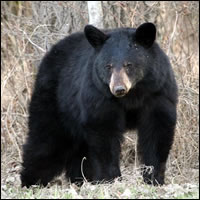Last night I joined a French conversation group which meets regularly in a local pub. I heard about it at a party in January and have been intending to join since then. Last night I finally tracked them down.
All members of the group are English and/or Welsh and can speak French well, or at least can understand it even if they don’t speak it fluently. The group has been going for about eight years and is run by a teacher of English as a foreign language from Bangor University. The rule is that only French is spoken for first two hours, and we stuck to this last night. After that English is allowed, though last night we continued to speak mainly in French.
It was fun, interesting, we discussed all sorts of topics, and I found that I can still speak and understand French reasonably well even though I’ve used it very little during the past 20 years. Welsh, which is currently my dominant foreign language, kept on trying to impose itself on my French, but I managed to keep it in check most of the time. If I’d spoken the mixture of French and Welsh that was brewing in my head the Welsh-speaking members of the group would have probably understood.
One thing we talked about was how it can be difficult to understand mispronounced words, especially in unfamiliar contexts. The leader of the group told us about a student of hers who was talking about a visit to the “islands”, or at least that’s what it sounded like. The leader kept on asking “Which islands?”, but the student kept on saying “the islands”. Eventually she worked out that the student was talking about the Highlands (of Scotland). The mispronunciation may be only slight, but it’s enough to disrupt comprehension, and this can happen not just with foreign languages, but also with different dialects and accents of your native language.
When I meet people with names I’ve never heard before, sometimes I find it hard to take in their names until I’ve seen them written down.
